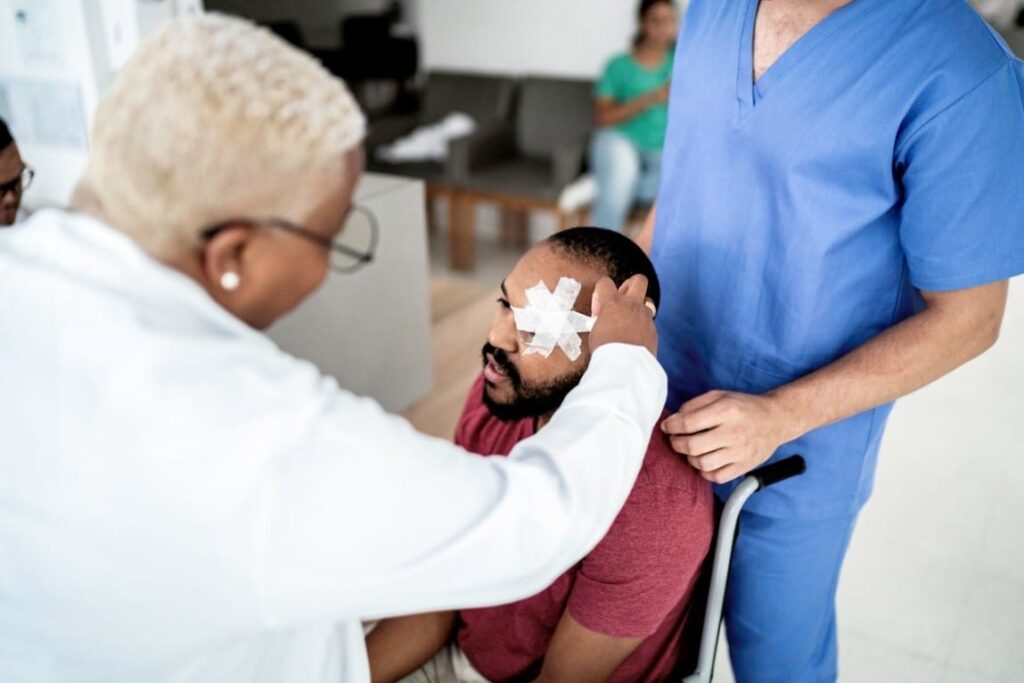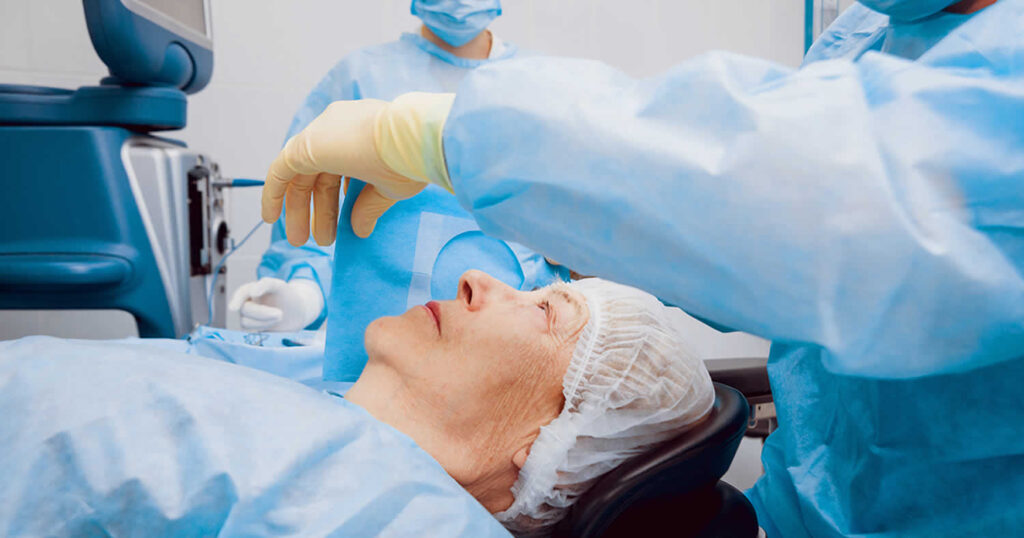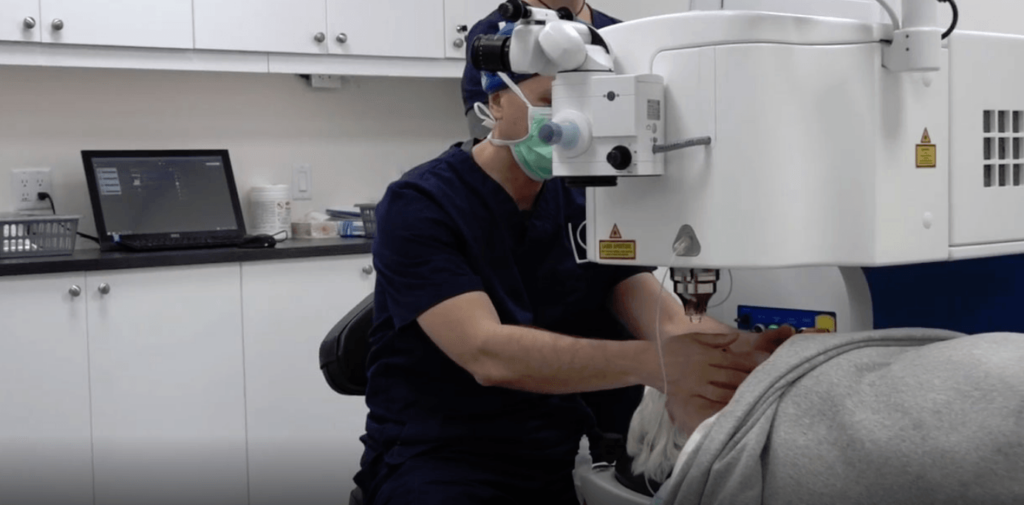A cataract is a clouding of the lens of the eye. The lens is an obvious disc situated behind the pupil within the eyeball. When a cataract develops, the amount of light passing through the retina reduces. Hence, vision becomes blurred or perhaps completely lost. The pupil, which usually appears black, may undergo noticeable color changes and seem to be white or yellowish. Cataract doesn’t cause discomfort or pain.
Surgical treatment is the only effective method to eliminate a cataract, cataract surgery sydney involves the removal of the lens and implanting a replacement lens. With technology advances, the successful rate is high with over ninety % of patients regaining good vision. Most cataract surgeries are performed as day surgical procedures without the demand for hospital admission. Generally, the affected person is given appointment to see his eye doctor the following day after the cataract surgery as well as a single week following the process. Post-operative consultations are incredibly vital for the doctor to look at the healing progress.
Cataract surgery is now one of most useful, beneficial, and common surgery among older people as they try to protect their crippling vision. It is a safe, high-reward, low-risk, effective, and quick surgery that leads to improved vision for more than ninety % of individuals.

During the surgery, your eye surgeon is going to replace your eye’s natural lens with an artificial lens, generally known as an intraocular lens. The brand-new lens works the exact same way as your previous one, except it is not cloudy. The procedure, that is done on an outpatient basis, takes 10 20 minutes.
Lots of patients report improved vision immediately following surgery, while others may not see results for many hours. the vision of yours is going to continue to improve for up to one month following surgery, at which point your vision will probably be a lot better than ever before – that is a relief! read more about Look out for these things in rapid antigen tests by clicking here.
What’s Dementia?
Dementia is an umbrella term which refers to a variety of health conditions characterized by abnormal changes to the brain health of yours and cognitive function. It usually describes a loss of memory, critical thinking skills, vocabulary, language, problem-solving ability, and far more.
You will find a variety of different dementia types. Alzheimer’s disease is probably the most common, occuring in 60 80 % of all dementia cases. Some other types include vascular dementia, Lewy body dementia, frontotemporal dementia, Huntington’s disease, Parkinson’s disease, and much more.
Along with many cognitive changes a person experiences with dementia, they are also governed by a variety of different behavioral, emotional, and social changes. In all those with dementia, the symptoms severely impact the individual ‘s potential to maintain a happy, healthy, and rewarding life.
Can there be a Relationship Between Cataract Surgery as well as Dementia?
Cataracts and dementia are 2 things which are certain to happen as we age. The earlier we get, the worse the eye health of ours and cognitive health get – it is the standard cycle of life. While that may be disappointing, there are many things you are able to do to slow down its development or progress.
For probably the longest time, researchers saw no major relationship between dementia and cataracts – despite both being a component of the process of aging. With a recent analysis which was conducted between 2019 and 2021, researchers are saying cataract surgery could possibly reduce one ‘s risk of dementia.
In reality, the study found that cataract surgery is’ associated with a thirty % lower risk of dementia.’ It followed the cognitive function and health of 3,000 older cataract surgery patients. Which means about one of every 3 patients in the study had a reduced risk of dementia following surgery.
There are many hypotheses as to why. One researcher believes the visual cortex goes through structural changes with vision loss. Another researcher believed not only could vision loss lead to a loss of cognitive function, but vision restoration could result in cognitive recovery.
Warning Symptoms and signs of Cataracts
Cataracts affect more than twenty million folks over the age of forty years of age. They are one of the major causes of vision loss and typically end up in blindness – especially if not diagnosed and treated in a prompt fashion. That is why early detection is very important when preserving the eyesight of yours.
Let us check out several of typical symptoms of cataract development:
- Blurry vision, cloudy vision, and hazy vision
- Poor night vision
- Light sensitivity, frequent glares
- Needing lights that are bright to read properly
- Seeing halos around lights
- Frequent eye prescription changes
- Colours either fading or perhaps yellowing
- Double vision in a single eye
Cataracts are generally dangerous in a feeling that many individuals are not aware they’ve it and symptoms are not always apparent at first. As time passes, these symptoms worsen and they begin to interfere with the quality of yours of life. Luckily, cataract surgery is able to enable you to regain your life back.

When Should you Consider Cataract Surgery?
If you are like the majority of individuals today, then surgery is generally reserved as a last resort option. It is one thing we wish to stay away from almost as they can, particularly considering how scary surgery can be. Do not worry, cataract surgery is not scary and also the advantages far outweigh the rare risks.
With that said, cataract surgery is often considered once symptoms begin to get in the manner of you living a quality, happy, healthy, and rewarding life. When you are finding it difficult to read, watch television, drive, or perhaps even recognize faces you have known for decades, contact your eye doctor.
You ought to be also scheduling an annual eye exam with your ophthalmologist – probably more often for those above the age of sixty years of age. This exam will help your eye doctor detect eye problems and diseases in the earliest stages of theirs, that is important for treatment.
The followings symptoms are common after surgery rather than a cause for alarm. They might remain to some extent for 6 8 weeks:
– Mild discomfort, scratchy sensation, slight redness, mild tearing, slight drooping and glare of upper eyelid in the operated eye.
– The individual may feel that there’s something in the eye of his. This’s natural and is because of the stitches. This feeling may last as much as 6 weeks.
– The vision might be blurry until eye glasses prescription is given or perhaps changed.
Contact the hospital right away if any of the following symptoms is presented:
– Severe or perhaps increasing pain in the operated eye
– Decrease in vision, flashes or floaters of light in the operated eye
– Excessive redness and discharge in the operated eye
– Headache, nausea and/or vomiting

